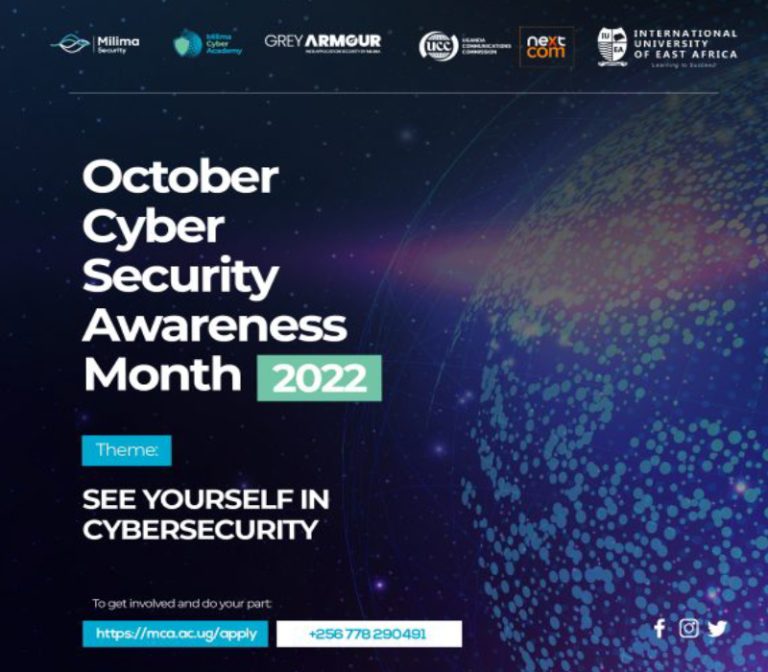Harnessing Cybersecurity for Businesses in Uganda’s growing Digital Economy

As Uganda rushes towards a digital future, the threat of cybercrime looms large. Unquestionably, the country’s quick adoption of technologies has accelerated economic growth and revolutionized service delivery. According to the Digital Report 2024 and Uganda Communications Commission (UCC) report on internet penetration in Uganda, there has been a boom in internet usage of 13.30 million users. But the digital revolution has also revealed new risks that need to be addressed immediately.
Once viewed as only a formality, cybersecurity is now seen as a strategic necessity for both the government and businesses. The cost of cyberattacks in terms of money is astounding. According to recent figure by the Uganda Police Force, cybercrime cost Uganda’s economy a staggering 19.2 billion UGX in 2022 alone across 245 ‘reported’ cases. This amount emphasizes the critical need for strong countermeasures.
“Cybersecurity is no longer a luxury for your business but a necessity,” asserts Emmanuel Chagara, CEO at Milima Security. “It’s about safeguarding not only data, but the very foundation of our digital economy.”
In addition to the financial costs, cybercrime has the potential to permanently harm a company’s brand. Customers and money can be lost as a result of a single data leak that damages consumer trust. This is especially important for industries that handle sensitive data, like banking, telecommunications, government, and microfinance institutions.

In order to protect themselves from these looming threats, businesses need to take the initiative. Creating cybersecurity strategies for their companies and organizations is crucial to keeping ahead of changing trends and threats. Equally crucial is educating staff members on how to identify and handle cyberthreats within the company. Cybersecurity insurance offered as of recent by a few insurance companies in the country has also recently emerged as a crucial safety net, offering financial protection in the event of a breach.
Companies like Milima Security are playing a pivotal role in bolstering Uganda’s cybersecurity landscape. Offering services such as Vulnerability Assessment and Penetration Testing (VAPT), Managed Security Service Provider (MSSP), Cybersecurity Maturity Program for SACCO’s (CMP4S), has enabled businesses identify and address vulnerabilities within and outside (potential) there organizations. Additionally, they provide comprehensive cybersecurity training to equip staff with the necessary skills to protect their organizations.
Government on the other hand has a crucial role to play. Uganda made a notable advancement with the adoption of its National Cybersecurity Strategy in 2022 which provides for but not limited to threat preparedness and response, development of a robust cybersecurity ecosystem, protection of national infrastructure among other strategies. However, to achieve its effectiveness, strict application of these strategies is necessary. Legislation that adapts to the ever-changing challenges posed by technology is crucial, as is encouraging a digitally literate culture among the populace. The formation of a UCC AI taskforce by the Uganda Communications Commission that had many youths in the country ‘up in arms’ is a great step in the right direction for the country in forming policy that protects personal and organizational data in the AI age.

In today’s age of artificial intelligence (AI), cybersecurity should be the top concern for every organization. It is essential for companies to prioritize securing, validating, and verifying all data that enters or leaves their systems.
It’s critical to strike a balance between innovation and security as Uganda continues its digital transformation. Prioritizing cybersecurity will allow the nation to take full use of technology while minimizing risks. https://ericdev.hashnode.dev/harnessing-cybersecurity-for-businesses-in-ugandas-growing-digital-economy

By Eric Tumuhairwe
Security Analyst
Milima Security



